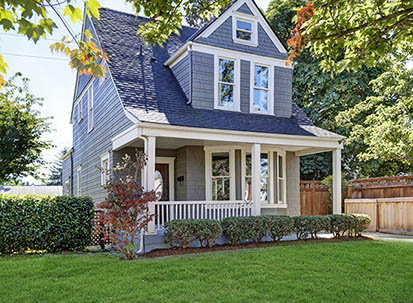“Never buy a house without a fireplace!” I’ve heard it said so many times, usually immediately following “location, location, location” or “buy the worst house in the best neighborhood.” It’s just one of those oft-touted guidelines of smart house hunting. But is it good advice?
When You Want a Fire, You Want a Fire!
Having lived in homes with and without fireplaces, I can say from personal experience that going without a fireplace can be frustrating. When you get the urge for a fire, not much else will suffice. So from the perspective of avoiding disappointment, the house with the fireplace is a safer bet.
Is that reason enough to forego that great deal on the house with no fireplace? Let’s look at a few factors.
 |
|
|
Resale Value Could Be Impacted
Feelings and enjoyment aside, what are the tangible benefits and drawbacks of a fireplace? One of the most significant could be resale value, but that is somewhat market driven. In South Texas, a fireplace might not be as much of a factor as it is in Maine. The best way to know for sure is to ask a local real estate appraiser or an agent. Another worthy investment of time might be to simply compare the listed price per square foot of homes with and without fireplaces. See if you can discern a tangible difference.
Heating Costs Could be More or Less
Not all fireplaces and homes are created equal when it comes to overall contribution to the heating of the home during wintertime. A giant wood-burning fireplace could significantly reduce the gas bill, but what’s the cost of wood? If there’s an unlimited supply just outside and an axe is your idea of good CrossFit, that fireplace could be a major cash saver. On the other hand, a tiny gas-burning fireplace in the corner of a giant great room may be more for looks, as it does nothing to keep the house warm (i.e. whatever you pay for gas is a sunk cost).
Can Fireplaces be Added After the Fact?
What about buying the house without a fireplace and then adding one as part of a remodeling project? The ease or difficulty of adding a fireplace often depends on the chimney. A gas fireplace that uses a direct-vent system for exhaust can be installed without the need for a dedicated chimney, which makes it fairly easy to do as a retrofit. If you want a wood-burning fireplace, or a gas fire with open flames, you’ll need a normal chimney built to meet your local building codes. The cost of that can fluctuate wildly based on factors such as the height of your roof and the material with which the chimney is built. A stone chimney that goes up two stories isn’t a small undertaking by any means.
What About Maintenance Costs?
Fireplaces, especially full fireplaces with chimneys, are anything but maintenance free. They attract critters, have to be swept and prove a fire hazard if tree branches happen to land near the chimney top. The list just goes on and on — and that’s if everything goes well. Fireplaces are also notorious for causing problems such as smoke damage, water leaks and, of course, fires!
In The End, It’s About You
The rule “never buy a house without a fireplace” isn’t really as applicable today as it might have once been. Modern heating systems have eliminated the need for fireplaces as heat sources, so it’s much more about lifestyle than utility.
The thing I’d remember is my first point: “When you want a fire, you want a fire.” When it really comes down to it, that’s the deciding factor. If I’m living somewhere that experiences cold falls, winters and even springs, I want a fireplace. If not, it’s no big deal.
The post Should You Buy a Fixer-Upper With No Fireplace? appeared first on RE: Find.
from Should You Buy a Fixer-Upper With No Fireplace?http://bit.ly/2SyUsfT

No comments:
Post a Comment